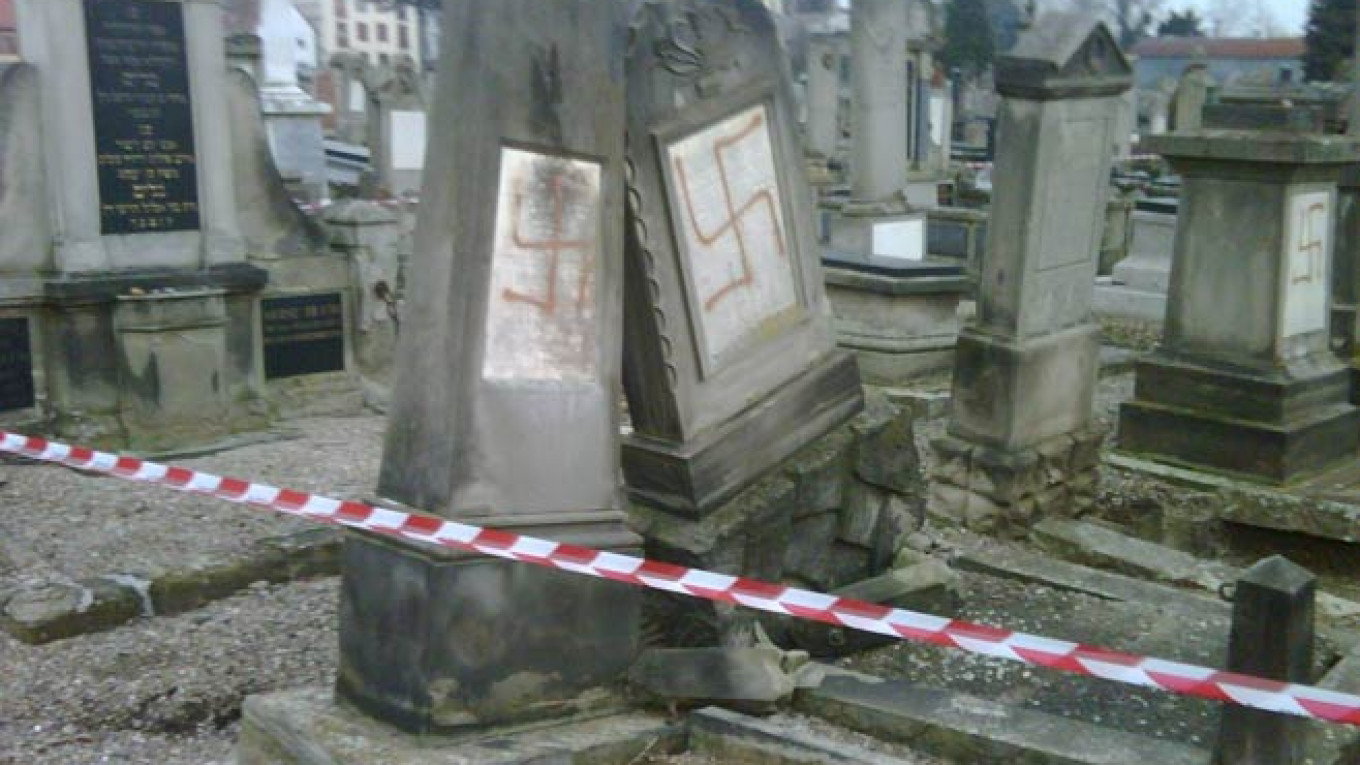While reviving many aspects of the Soviet Union, President Vladimir Putin's regime has avoided one of the most odious of all Soviet practices: state-sponsored anti-Semitism. There are no Soviet-style hidden quotas for jobs or universities and no harangues of Israel and global Zionism that often masked old-fashioned Jew-hatred.
But the path on which Russia's president is taking his country will make the eventual emergence of anti-Semitism and anti-Jewish conspiracy theories unavoidable.
When the Soviet Union collapsed in 1991, more than a million Soviet Jews fled to Israel, the U.S. and Germany. They were scared not so much of the economic collapse as they were of the rise of right-wing movements — such as Pamyat, which espoused the ultra-nationalist, anti-Semitic ideology of the infamous Black Hundred of the tsarist times.
Happily, no anti-Semitic groundswell materialized, and the post-Soviet environment in general has been quite tolerant. There are synagogues in Moscow, St. Petersburg and smaller cities. Chabad-Lubavitch centers are reviving Jewish life in historic centers of the diaspora. The Jewish Museum and Tolerance Center opened in Moscow in 2012. The official number of Jews in Russia is 275,000, but there may be as many as 650,000. Some immigrants came back or maintain dual residencies. And there are many Jews among the country's business elites, some even in Putin's inner circle.
But Russia is playing a dangerous game. It is reliving the German history of the first half of the 20th century with uncanny precision — step by step. Germany capitulated in 1918 without suffering a major defeat, giving rise to the "stab-in-the-back" myth and disillusionment with the democratic Weimar Republic. In Russia, too, the view that the Soviet Union was "sold out" to the West is now widespread, and the period of liberalization and democratization of the 1990s is also recalled with disgust. Thus, it is not surprising that Putin's ability to stand up to the West and return Russian-speaking territories has been hailed by people of all social backgrounds.
Meanwhile, xenophobia is on the rise, and it is directed against perfidious Westerners — especially Americans. It is no coincidence that Putin warned against "national traitors" and the "fifth column" in his recent speech at the Kremlin, marking the signing of the Crimean annexation.
Nationalistic, authoritarian regimes that despise modernity and hark back to nebulous "traditional values" sooner or later begin targeting Jews. That is because educated, urban Jews are international in outlook, skeptical of received opinion and self-deprecating in their humor. They are forever questioning authority and distrust simplistic solutions.
Stalin espoused none of Hitler's racial theories, but he did turn on the Jews at the end of his reign. Members of the wartime Jewish Anti-Fascist Committee were rounded up. On a single night in 1952, more than a dozen Yiddish-language writers were shot. Jewish medics were swept up in the infamous Doctors' Plot. Stalin had concrete plans to deport Soviet Jews to the Far East; only his death in 1953 saved them from this fate.
Meanwhile, Jew-baiting has started to seep back onto Russia's state television broadcasts. Pro-Kremlin anchors such as Dmitry Kiselyov like to stress the Jewish roots of vocal members of the domestic opposition and political leaders in Ukraine as a principal way to denounce them. If Putin's Russia continues on the same nationalistic, insular and imperial course, it will soon start accusing Jews of disloyalty and perfidy.
Alexei Bayer, a native Muscovite, lives in New York. His detective novel "Murder at the Dacha" was published by Russian Life Books in 2013.
A Message from The Moscow Times:
Dear readers,
We are facing unprecedented challenges. Russia's Prosecutor General's Office has designated The Moscow Times as an "undesirable" organization, criminalizing our work and putting our staff at risk of prosecution. This follows our earlier unjust labeling as a "foreign agent."
These actions are direct attempts to silence independent journalism in Russia. The authorities claim our work "discredits the decisions of the Russian leadership." We see things differently: we strive to provide accurate, unbiased reporting on Russia.
We, the journalists of The Moscow Times, refuse to be silenced. But to continue our work, we need your help.
Your support, no matter how small, makes a world of difference. If you can, please support us monthly starting from just $2. It's quick to set up, and every contribution makes a significant impact.
By supporting The Moscow Times, you're defending open, independent journalism in the face of repression. Thank you for standing with us.
Remind me later.






